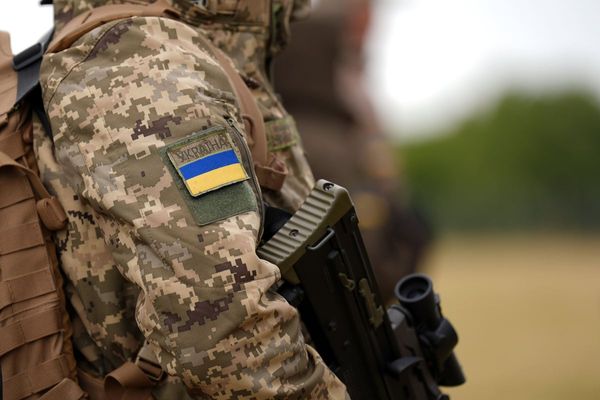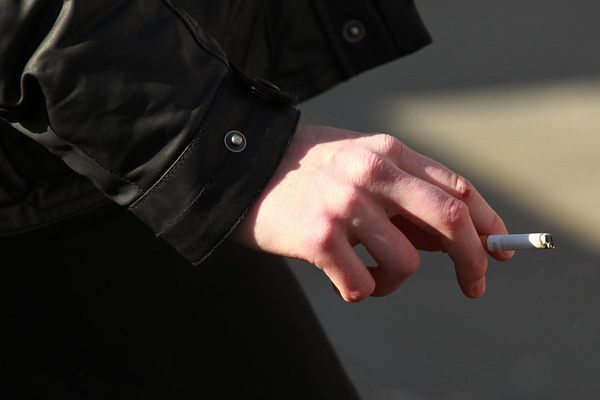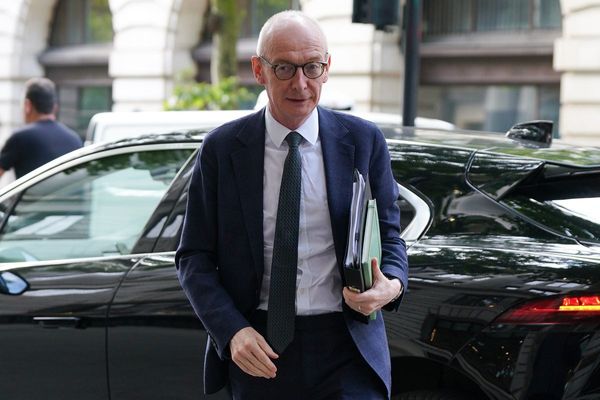
Kyiv (AFP) - Ukraine accused the Kremlin of "nuclear terror" and the West expressed horror on Friday, after Europe's largest atomic power plant was attacked and taken over by invading Russian forces.
Blasts lit up the night sky as the plant at Zaporizhzhia came under shell fire, while Russian troops advanced in southern Ukraine and bombarded several cities elsewhere.
Ukrainian firefighters said they were prevented from accessing the site initially, before they were able to douse a blaze at a training facility on the site.
The six reactors at Zaporizhzhia, which can power enough energy for four million homes, were apparently undamaged and international monitors reported no spike in radiation.
The attack killed three Ukrainian soldiers, according to Kyiv's nuclear operator Energoatom, and was slammed in Washington, London and other Western capitals as utterly irresponsible.
"We survived a night that could have stopped the story, the history of Ukraine, the history of Europe," Ukrainian President Volodymr Zelensky said.
An explosion at Zaporizhzhia would have equalled "six Chernobyls", he said, referring to the plant in Ukraine that was the site of the world's worst nuclear disaster in 1986.
"Russian tank commanders knew what they were firing at," Zelensky alleged, adding: "The terrorist state now resorted to nuclear terror."
Russia blames Ukraine
For its part, Moscow said the attack on Zaporizhzhia was staged by "Ukrainian sabotage groups with the participation of foreign mercenaries".
"The goal of the provocation at the nuclear station was to try to accuse Russia of creating a radioactive flashpoint," Russian defence ministry spokesman Igor Konashenkov claimed.
"This shows the Kyiv regime's criminal plan," he said, adding that the plant had been secured by Russian troops and was functioning normally.
After phoning Zelensky during the night, British Prime Minister Boris Johnson demanded an urgent meeting of the UN Security Council.
He accused Russian President Vladimir Putin of "reckless actions" that "could now directly threaten the safety of all of Europe", and pressed anew for a ceasefire.
Putin, however, has been unrepentant about an offensive that has cast Russia into the economic, sporting and cultural equivalent of exile to Siberia.
He said Thursday that the invasion was going "strictly according to schedule, according to plan" in its aim of driving out the "neo-Nazis" in Kyiv led by Zelensky -- who is Jewish.
Addressing security chiefs in televised comments, Putin added that he would never abandon his conviction "that Russians and Ukrainians are one people".
French President Emmanuel Macron, after speaking to Putin on Thursday, believes "the worst is to come", an aide said.
'Like Aleppo'
Russia has intensified strikes across the country during the nine days of conflict, with fresh reports of civilian casualties and devastating damage, particularly in southern areas near Kherson, the first city to fall to Moscow's troops.
In a second round of talks held Thursday, Moscow agreed to a Ukrainian request for humanitarian corridors to allow terrified residents to flee.
But there was no clarity on how the corridors would work, and no sign of any move towards a ceasefire.
Zelensky called for direct talks with Putin.But he also urged the West to step up military assistance and "give me planes".
Ukrainian leaders warn that Russia, with its invasion bogged down north of Kyiv, is bent on reprising the horrific tactics that it used to level the Syrian city of Aleppo in 2016.
The port city of Mariupol, east of Kherson, is cut off without water or electricity in the depths of winter.
Mariupol's deputy mayor Sergei Orlov told BBC radio that its humanitarian situation was "terrible", after 40 hours of continuous shelling including on schools and hospitals.
"Today Putin style of war is like Aleppo.So Mariupol goes to Aleppo," Orlov said in English."I believe that he wants to destroy Ukraine as a nation, and Mariupol is on this way."
In the northern city of Chernihiv, 33 people died Thursday when Russian forces hit residential areas, including schools and a high-rise apartment block, according to local officials.
Facebook, BBC blocked
Authorities say residential parts in the eastern city of Kharkiv have also come under indiscriminate shelling, which UN prosecutors at The Hague are investigating as a possible war crime.
The UN Human Rights Council on Friday overwhelmingly voted to create a top-level investigation into violations committed in the invasion.
The conflict has already produced more than one million refugees who have flooded into neighbouring countries in Europe.
Both the EU and the United States said they would approve temporary protection for all refugees fleeing the war.
It is also driving some Russians to flee the country, fearful that now is their last chance to escape the economic pain from ever-tougher Western sanctions, or a Kremlin crackdown on domestic opposition.
On one of the few remaining routes from Russia to the EU, trains from Saint Petersburg to Finland have been packed with Russians.
"I know some people who are quite desperate at the moment to go abroad," said Elena, a 37-year-old Russian living in Finland who did not want to give her full name.
A lot of people "don't feel safe, they know that the economic situation will be very hard from now on, and also many people from a moral perspective can't bear staying", she told AFP in Helsinki.
It is not just people fleeing.
Six lions and six tigers evacuated from near Kyiv arrived at a zoo in Poland, following a two-day odyssey skirting battle frontlines and coming face to face with Russian tanks.
Putin's invasion has also pushed some eastern European countries to lean even harder West, with both Georgia and Moldova applying for EU membership.
In Russia, authorities have imposed a news blackout and two liberal media groups said they were halting operations, in another death-knell for independent reporting under Putin's regime.
On Friday, Facebook and multiple media websites including the BBC were partially inaccessible in Russia.
And Russian lawmakers approved legislation to impose fines and jail terms of up to 15 years for anyone publishing "fake news" about the army.
Western social media companies "carry hatred and lies" against Russia, parliament chairman Vyacheslav Volodin said.
But some Russians appear keen to bypass their state-controlled media.
The BBC says the audience of its Russian-language news website has more than tripled this week, to a record 10.7 million people, and the UK broadcaster vowed to keep the site up.
burs-jit/ach







